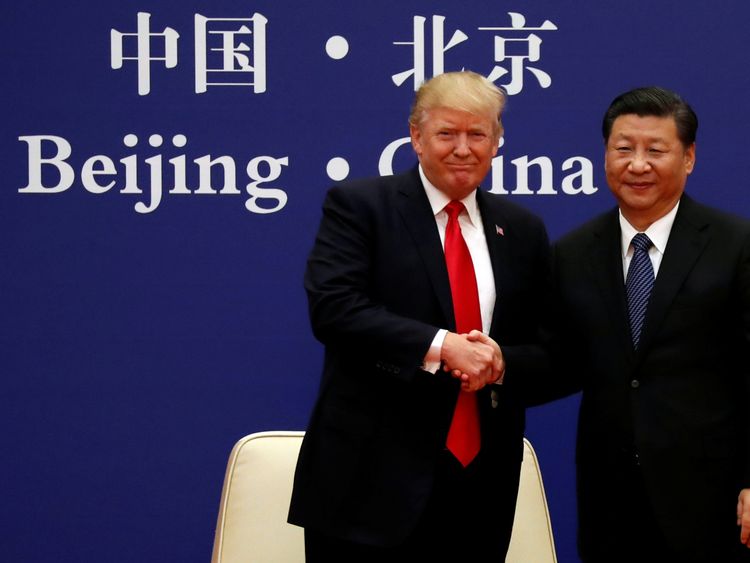Did you just bought or format your system, or you
just changed the o.s of your system, if yes you really need these softwares to
make your system work in better ways.
Browser.
Browser A browser is an application
program that provides a way to look at and interact with all the
information on the World Wide Web. The word "browser" seems to
have originated prior to the Web as a generic term for user interfaces that let
you browse (navigate through and read) text files online.
The best browser I recommend for you is chrome.
Download chrome for your PC here.
Online
Backup
Online data backup (remote data backup) is a method
of off-site storage in which data is regularly backed up over
a network on a remote server, typically hosted by a service
provider. Using online backup is very essential as your computer cannot be
predicted. Many causes could make you lose your files. So the online backup I
recommend is DROPBOX.
Dropbox is a personal cloud storage service
(sometimes referred to as an online backup service) that is frequently used for
file sharing and collaboration. The Dropbox application is available for
Windows, Macintosh and Linux desktop operating systems.
Download Dropbox for your pc here.
Media Player
Media player Software that "plays" audio, video or animation files in the computer. In the Windows world, Windows Media Player is the default player from Microsoft, but iTunes, Real Player and other software are also widely used. The Best Media Player I recommend Is VLC
VLC media player (commonly known as VLC) is a free and open-source, portable and cross-platform media player and streaming media server developed by the VideoLAN project. VLC is available for desktop operating systems and mobile platforms, such as Windows 10 Mobile, Windows Phone, Android, Tizen, iOS.
Download VLC for your PC here.
Text
editor.
A text editor is any word processing
program that you can use to type and edit text. ... Word Pad and
Notepad for Windows and SimpleText and Text Edit for the Mac are common text
editors. The best text editor currently is the MICROSOFT WORD.
Microsoft Word is the most popular word processing
program – and justifiably. It is easy to use and allows you to create all
different types of documents.
Download Microsoft word latest version for your PC
here.
Image
Editor
Software
that allows images to be edited and also converted to different graphics
formats. Image editors typically deal with only bit mapped images such as GIFs,
JPEGs and BMPs; however, some editors support both bitmaps and illustrations
(see vector graphics). Common functions are manually cropping and resizing
the image and using "filters" to adjust brightness, contrast and
colors. Myriad filters are available for special effects (see image filter).
Red eye removal is included in editors specialized for photos. The Best Image
editing tool is PAINT.
It comes
with the OS windows of your system. Other recommended software instead of paint
is
Coreldraw.
Download the latest version of Coreldraw
for your PC here.
Pdf Reader.
PDF is
also an abbreviation for the Netware Printer Definition File. PDF (Portable
Document Format) is a file format that has captured all the elements of a
printed document as an electronic image that you can view, navigate, print, or
forward to someone else. The best and most recommended pdf reader is the ADOBE READER.
Adobe
Reader is a free program for viewing and printing PDF documents. It
includes an Adobe Acrobat browser plugin for displaying PDF documents
within Firefox and other Web browsers. (By default, Firefox uses its
built-in PDF Viewer.)
Download the latest version of ADOBE
READER for your PC here.
Security
Computer security,
also known as cyber security or IT security is the protection of
computer systems from the theft and damage to their hardware, software or
information, as well as from disruption or misdirection of the services they
provide. The best security for PC is Avast.
Screenshot tool
A screenshot,
or screen capture, is a picture taken of your computer's desktop.
This may include the desktop background, icons of files and folders, and open windows.
... Both the Mac OS and Windows operating systems make it easy to
take screenshots.
I
recommend screencaptor for your pc
screen shot.
Download the latest version of SCREENCAPTOR
for your PC here.
Backup
tool
Backup
software is computer programs used to perform backup; they
create supplementary exact copies of files, databases or entire computers.
You can
find the best backup tool for your PC here.
Archive utility tool
A
file archiver is a computer program that combines a number
of files together into one archive ... Users of the Unix tools use
additional compression tools, such as gzip, bzip2, or xz, to compress thearchive file
after ... Modifying one means the file needs to be put back
into archive and the archiverecompressed again. The best file
archive utility tool is WINRAR
WinRAR is a trialware file
archiver utility for Windows, developed by Eugene Roshal of win.rar GmbH. It
can create and view archives in RAR or ZIP file formats, and unpack numerous
archive file formats.
Download the latest version of WINRAR
for your PC here.
Messaging tools.
Messaging
tools (also called electronic messaging tools) are the tools used in the
creation, storage, exchange, and management of text, images, voice,
telex, fax, e-mail, paging, and Electronic Data Interchange (EDI) over a
communications network.
Most recommended
messaging tools is the FRANZ.
Franz is
a very interesting program for any user that spends a significant amount of
time on their PC. Thanks to Franz you'll be able to respond to
any message...
Download the latest version of FRANZ
for your PC here.
OTHER TIPS INCLUDE.
- Using the best drivers to drive the
system
- Watch the amount of games installed on
the stall
- Using an Usb security is also a good
idea.
Please remember to
subscribe to our blog.
 Image:Mr Duterte rejects claims his war on drugs has created a 'climate of fear'. File pic
Image:Mr Duterte rejects claims his war on drugs has created a 'climate of fear'. File pic Image:Ms Callamard described the Philippines' human rights funding as 'reprehensible'
Image:Ms Callamard described the Philippines' human rights funding as 'reprehensible' Image:Demonstrators in Manila hold pictures of family members killed in the war on drugs
Image:Demonstrators in Manila hold pictures of family members killed in the war on drugs



 Image:Donald Trump also spoke in South Korea about North Korea's leader Kim Jong Un
Image:Donald Trump also spoke in South Korea about North Korea's leader Kim Jong Un Image:Donald Trump says China needs to do more about North Korea
Image:Donald Trump says China needs to do more about North Korea Image:On the agenda in Beijing was a military parade with China's president Xi Jinping
Image:On the agenda in Beijing was a military parade with China's president Xi Jinping Image:Donald Trump is in China as part of his Asian tour, with the next stop Vietnam
Image:Donald Trump is in China as part of his Asian tour, with the next stop Vietnam Image:The driverless bus smoothly rolls into a parking space in Las Vegas
Image:The driverless bus smoothly rolls into a parking space in Las Vegas Image:Passengers on the driverless bus before the accident
Image:Passengers on the driverless bus before the accident Image:A sign in the back window reads: 'Look ma, no driver'
Image:A sign in the back window reads: 'Look ma, no driver'




